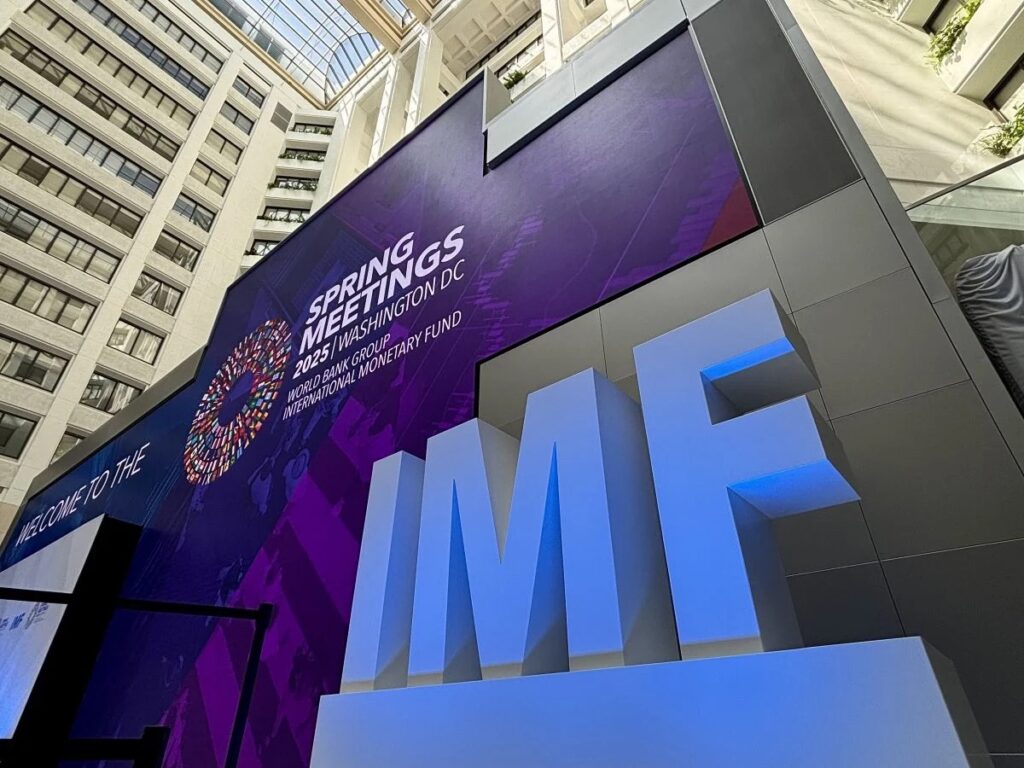Lebanon is currently participating in the International Monetary Fund (IMF) and World Bank
Spring Meetings in Washington which began on Monday, April 21, and end on Saturday, April
26.
The Meetings bring together central bankers, ministers of finance, academics and
representatives from development, private sector and civil society groups to discuss the state
of the global economy and issues of international concern.
From Lebanon’s side, the delegation included senior officials such as Minister of Finance
Yassine Jaber, Central Bank Governor Karim Souaid and other cabinet ministers.
Not to Please Anyone
From Washington, Jaber highlighted that the purpose of Lebanon’s mission is to reintegrate
Lebanon into the international community and restore trust with partners, and not necessarily
to finalize an agreement.
Jaber also emphasized in an LBCI report that the Lebanese state is not undertaking any reforms
to please the IMF or any other party, but rather to allow for the country’s recovery.
The minister also criticized the lack of reforms over the years, and particularly some
mismanagement across different sectors, naming the electricity sector as a quintessential
example.
Reforms and Conditionalities
One of the main issues that have repeatedly obstructed Lebanon’s chances of securing a deal with the IMF is the stance of banking-affiliated Lebanese negotiators against many of the
Fund’s conditionalities. Among such conditionalities are several reforms that aim at increasing
transparency at the level of the banking sector’s governance, such as the amendment of the
banking secrecy law.
After years of financial collapse and repeated pressures from international actors on Lebanon
to implement such reforms, the Lebanese parliament finally approved the law lifting banking
secrecy on Thursday, April 24.
Importantly, the law will have a 10-year retroactive effect and apply to all bank accounts all the
way to 2015 when the financial engineering schemes started and early signs of the
socioeconomic crisis began to appear.
In addition, the law also expands the list of authorities that are allowed to request the lifting of
banking secrecy on suspicious accounts and allows access to accounts by name, not just by
account number.
Before Lebanon’s trip to Washington, sources indicated that Lebanon should not expect any aid
packages if such reforms were not enacted. Today, with the law being approved by parliament,
the potential of Lebanon to secure deals with international donors has significantly increased.
Cross-Sectoral Projects
In October 2024, the World Bank had approved a US$250 million project to step up renewable
energy in Lebanon, which focuses on the restoration of electricity grid services and support for
continued implementation of reforms.
The Bank highlighted that Lebanon’s electricity sector has been at the center of the country’s
economic and fiscal challenges, noting the interlinkages between the sector and broader
economic and population well-being pathways.
With the fall of the Assad regime in Syria and the arrival of a new government, analyses also
suggest that regional trade and economic relations through land routes could also be
enhanced, particularly in areas such as fuel and electricity routes.
Moving forward, Lebanon is set to navigate a series of important challenges in its international
relations in the near future. Securing well-needed aid packages, restoring international
partners’ trust and establishing expanded economic relations are some of the many steps that
the country needs for its economic rejuvenation.
